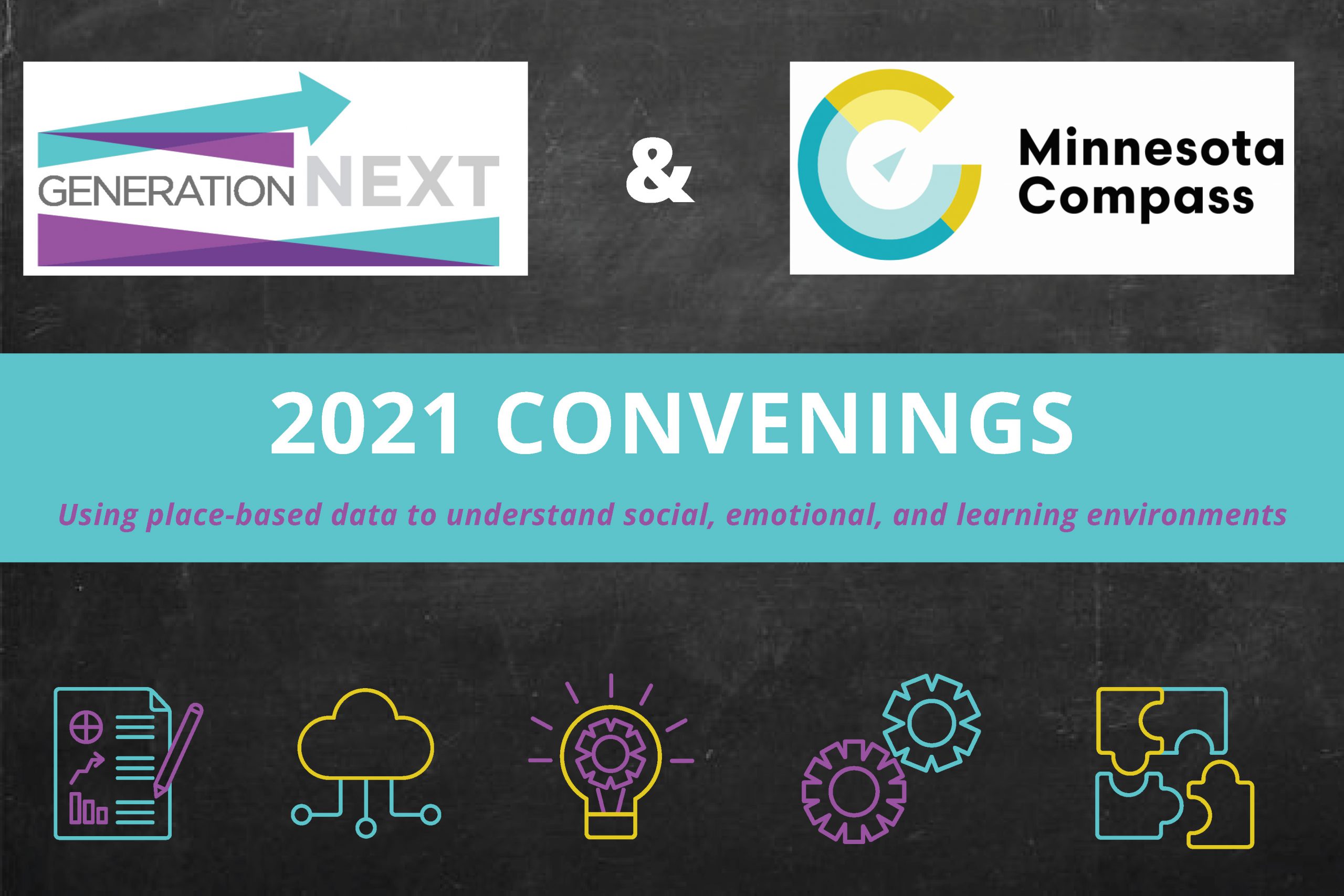Reflection on Place-Based Data Convenings with Minnesota Compass

How can place-based data inform the decisions that we need to make to ensure that all young people graduate high school ready for college and a career?
To help answer this question, Generation Next partnered with Minnesota Compass to identify and explore a series of data indicators that educational and community stakeholders can use to better inform their efforts in pursuit of this goal.
For years, both organizations have disaggregated, analyzed, and shared data to spur action to eliminate the racial disparities that plague our community. The data identified in this partnership will contribute to a Twin Cities-based information hub that will link neighborhood-level data across systems to track community progress on creating the social, emotional, and learning environments that can lead to successful, equitable outcomes later in life.
Generation Next and Minnesota Compass shared insights from the initial research across three virtual convenings in 2021. The first two sessions focused on specific angles through which to view communities. The final convening served as a capstone for integrating community perspectives in developing a clear through-line for effectively connecting individual, neighborhood, and systems data.
Read all three articles by clicking the links below:
Geographic Mobility and Educational Attainment (January 21, 2021 convening)
This convening’s article highlighted neighborhood-level data to explore housing stability and parental educational outcomes as environmental factors for possible impacts on early learning.
Intergenerational Households and School Enrollment (March 4, 2021 convening)
This convening’s article examined how the roles of extended family and active demonstrations of family commitment to lifelong learning manifest at a neighborhood-level as critical factors influencing early childhood outcomes.
Community Perspectives on Data, Achievement and Opportunity (April 15, 2021 convening)
This convening’s article centered on community knowledge, skills, and expertise in making meaning from data-based approaches to creating, supporting, and sustaining healthy social, emotional, and learning environments where all children, families, and neighborhoods flourish and thrive.
Through the three virtual convenings, participants gained practical insights into and contributed to the understanding of the social, emotional, and learning environments of different Twin Cities neighborhoods. Participants were also able to begin to see how the practice of using data to accurately represent community assets can aid in their efforts to support lifelong learning for all our young people–from early childhood through high school and beyond.
Generation Next greatly enjoyed this opportunity to partner with Minnesota Compass! Through these three virtual convenings, we were able to engage a large number of new attendees who had not attended a Generation Next event or meeting before. We are energized by the enthusiastic participation of those who were able to attend these convenings with us, and we look forward to continued engagement with this network in the future!
To make sure you’re notified about the next virtual convening, send your contact information to Molly Barrett.
